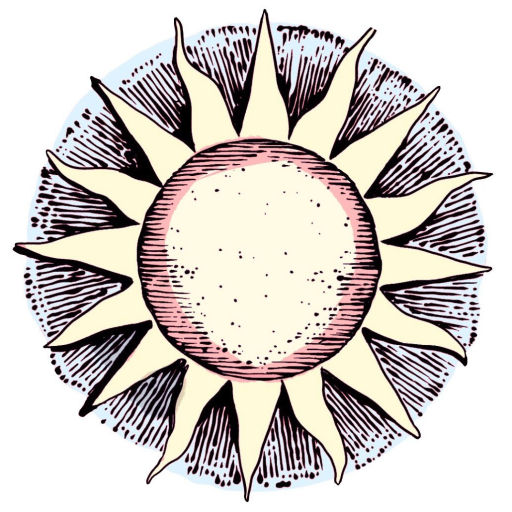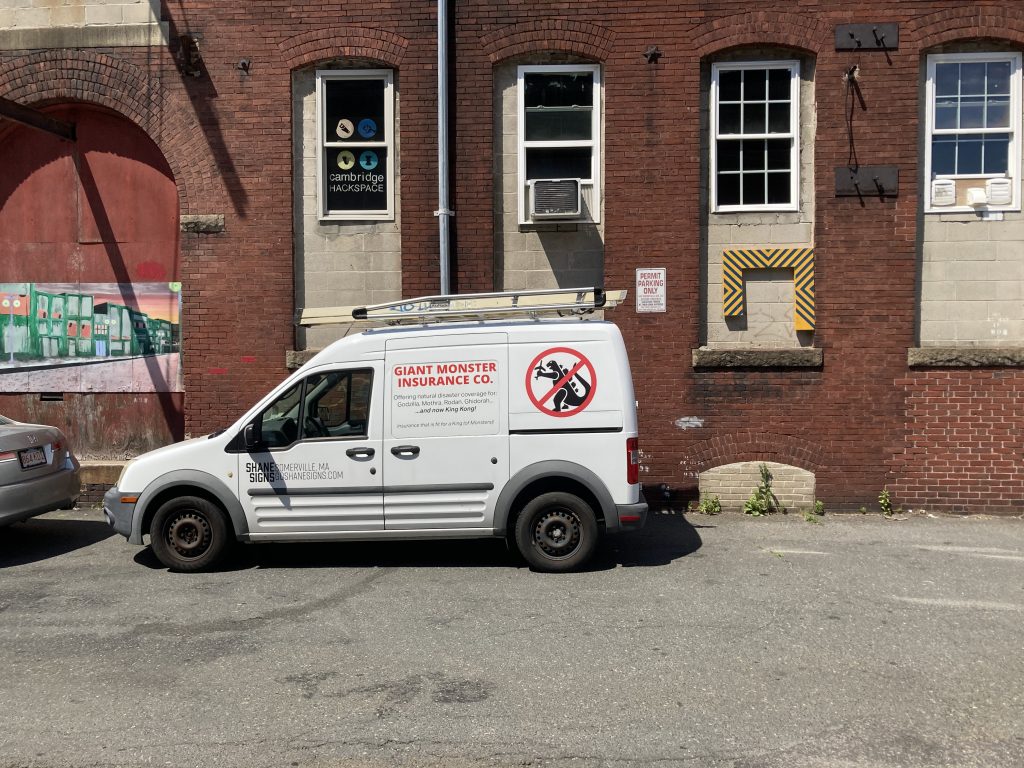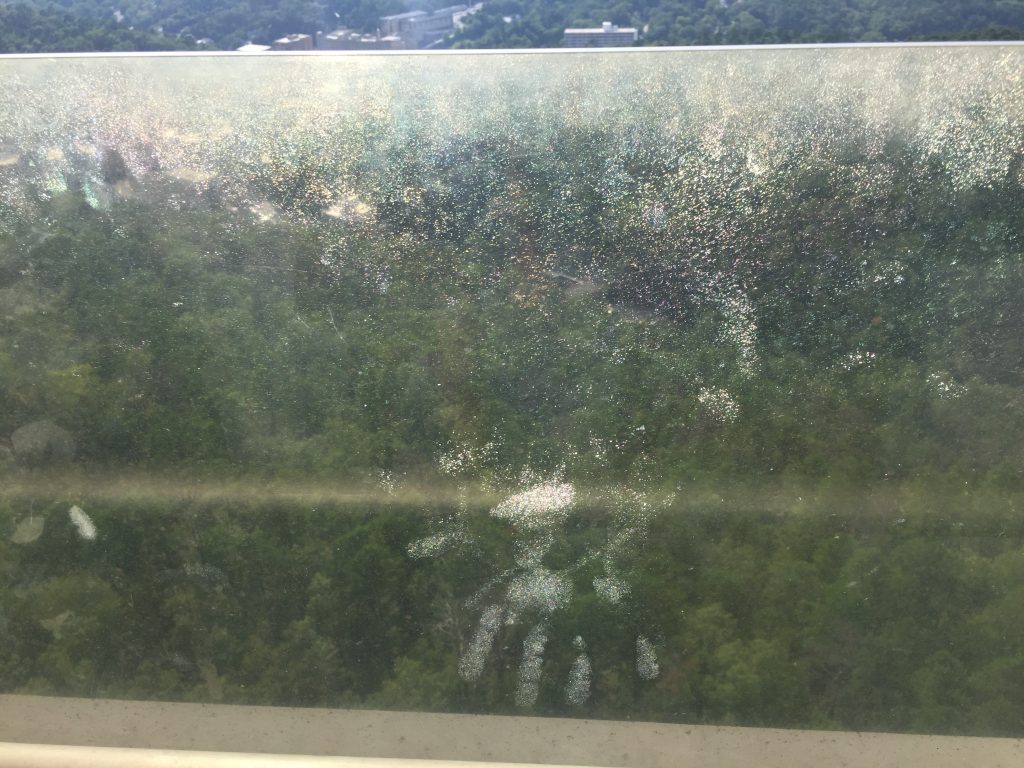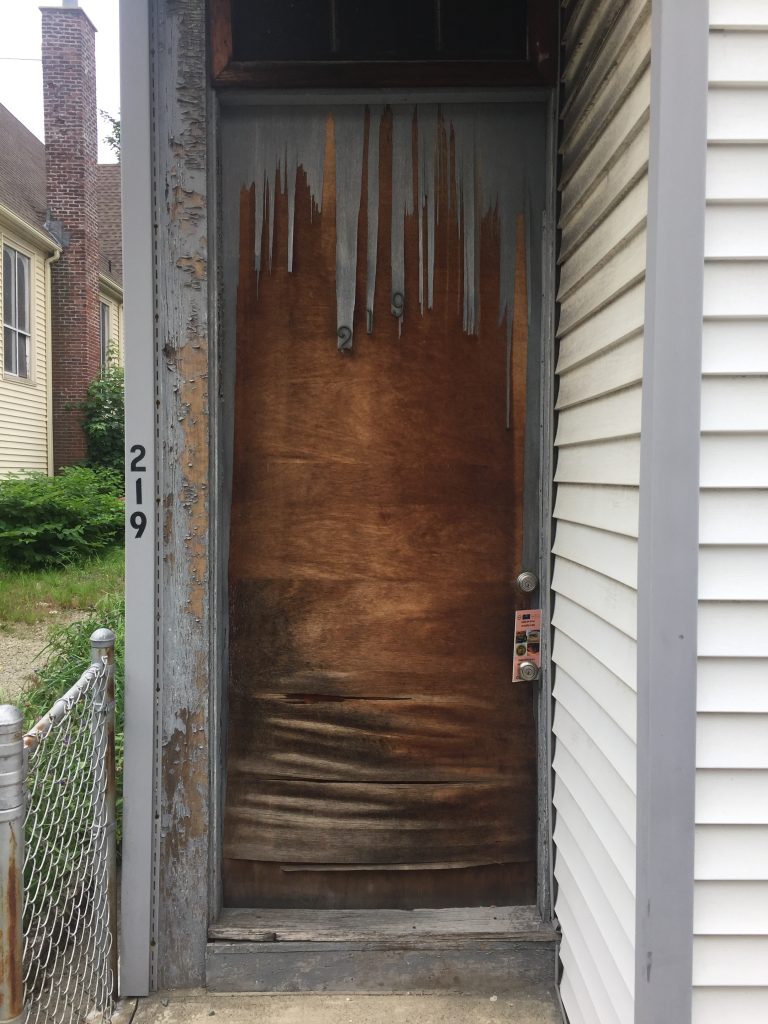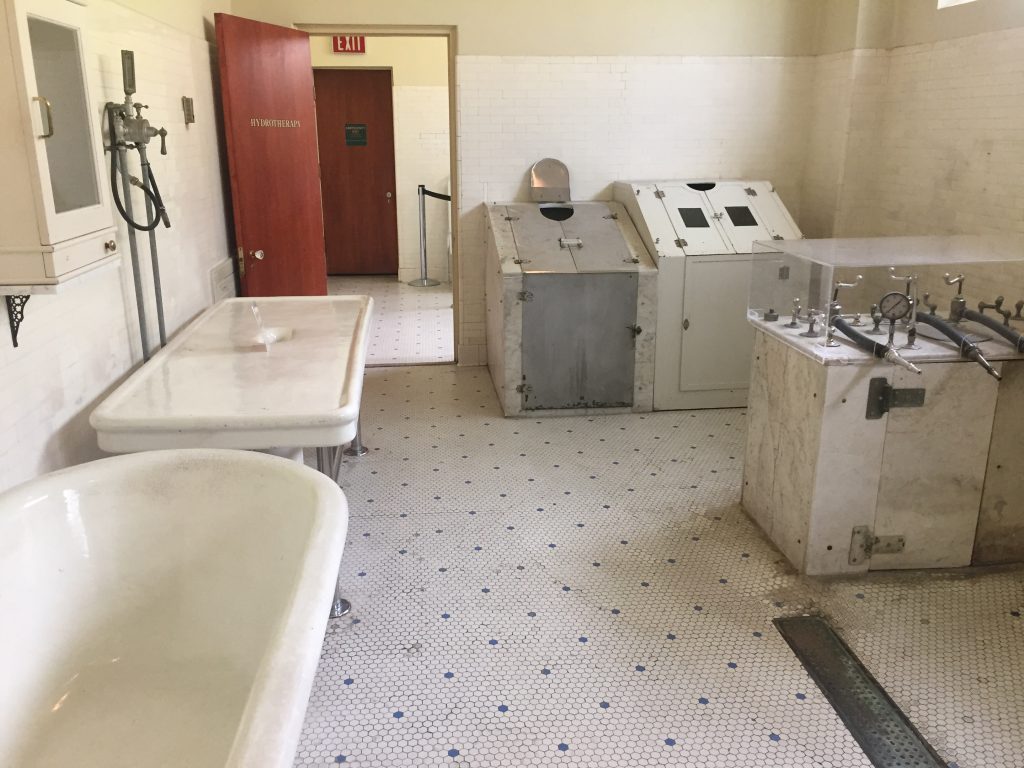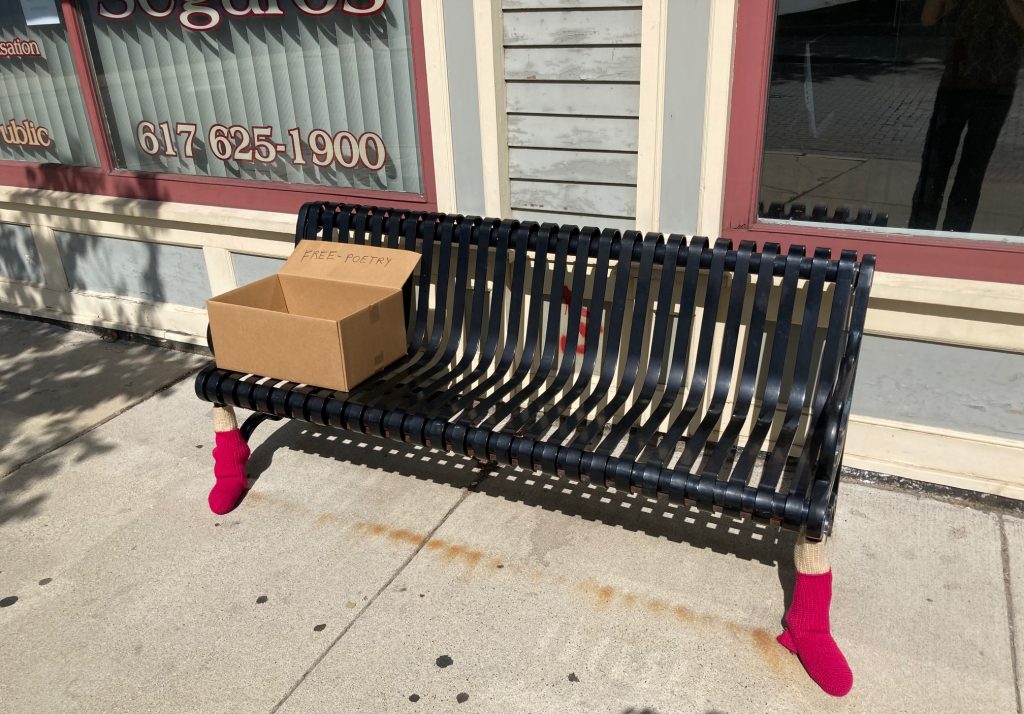
‘‘With an eye on Paris’ physical meter, measured in expensive lengths of platinum-iridium, the nation’s movie industry reacted to the early-eighties’ rise of the American sex comedy with a similar solution. Rather than rely on the memories of Hollywood’s aging elite (or the notoriously exaggerated descriptions provided by the then-modern teens) a group of troublesome youth were supplied a stipend, a venue, and enough booze and alcohol to throw a party as they saw fit. Two-way mirrors and cameras allowed the industry’s writers to harvest plot seeds from the all-year party (later shortened to ‘The All-Party’) and to have a reasonable defense when the prudish MPA inevitably tried to slap them with anything above an ‘R’ rating for being unrealistically gratuitous.
‘The All-Party’ was meant to be a temporary project, funded by three producers, each with a specific script in mind. When those films were inevitably lost in the late-eighties oversaturation of sex-romps, the producers prepared to disperse ‘The All-Party’ but were approached by a new batch of filmmakers, freshly arrived to try their own hand at the bloated concept. So it came to be that ‘The All-Party’ was handed down for decades, outliving many of the original participants and informing the silver screen’s understanding of what it meant to be a modern teenager for far longer than the initial one-year run. As party-goers aged out (passing the threshold even for ‘skeevy college-aged alum’) they were dragged off in their alcohol-induced slumber to be replaced by some wide-eyed transfer whose only goal in life was to comfort his crush when she’s dumped by the jock. These rookies were quietly poached from schools nationwide, usually students who had been expelled for (or dropped-out to pursue) little ‘All-Parties’ of their own.
Unfortunately for realists, ‘The All-Party’ is no platinum bar and the unit by which Hollywood measures its characters has long since warped into something altogether different. A crackdown on child endangerment has led to ‘The All-Party’s’ youngest recruits being 18. The result is that most high school melodramas are played out by full-fledged adults who tower over their lockers and struggle to act as though they’re only just learning about sex.
More importantly, ‘The All-Party’ is changed by the vacuum that maintains it, fermenting into something that is more itself than was ever initially intended. It has become such a concentrated pit of deviancy that writers now work to dilute what they witness through its mirrors in order to provide something remotely palatable to their global audience.
Participants emerge from ‘The All-Party’ with no understanding of society. They shuffle to music they no longer hear, sleep for only hours at a time, and suffer painful drug and alcohol withdrawals. Many are injured from cruel, slapstick stunts performed around the ‘The All-Party’s’ pool. Many are wracked with guilt or anxiety for having felt, for so long, that ‘The All-Party’s’ fictional parents would be arriving sooner than expected and that ‘the mess’ would need to be cleaned up before that time. Since 2007, when a drug-resistant form of gonorrhea was traced back to ‘The All-Party,’ all out-going participants are quarantined for two weeks and subject to a battery of tests upon exit. The quiet solitude of their hospitable bed is known to trigger panic attacks and therapists stand by to ease their post-party depressive episodes.
Just one of ‘The All-Party’s’ two-way mirrors are accessible to the public. Voyeurs treat ‘The All-Party Overlook’ as a sort of pilgrimage site but are often disappointed at what they find there. Those willing to describe what they saw relate a scene more evocative of science fiction or body horror than your average straight-to-streaming comedy and they grimace and shrug and wonder aloud how such a thing could even be legal.’
-an excerpt, Autumn by the Wayside
Perhaps you remember, years ago, the day I was kidnapped by a witch hunter and rescued by the Stranger. I’ve recovered from the event, inundated by a slew of further traumas in the meantime. One might even suggest I’ve learned something, though, if that’s the case, ‘The Second Place for Follower’s of the Gray Witch, Roki’ is undoubtedly the first test of that theoretical knowledge.
‘(sponsored content)
Following the destruction of ‘The [Original] Place for Follower’s of the Gray Witch, Roki,’ ‘The Second Place for Follower’s of the Gray Witch, Roki’ is second in name, only. Now offering space for both followers of the Gray Witch, Roki (any branch) AND friends and family of followers of the Gray Witch, Roki (up to four), ‘The Second Place for Followers of the Gray Witch, Roki’ is the nation’s number one choice for card-carrying followers, friends, and family alike. Please limit familiars to one-per-follower (as the Dust Tome mandates).
(sponsored content)’
I’m not at all nervous about the visit until my sheet of counterfeit membership cards slides from a machine in the local print shop and I begin the tedious process of cutting them out. The edges of the first as so mangled by my nervous tremors that it wouldn’t pass muster with even the least invested bouncers or doormen. Like casting a spell or embellishing a resume, the use of a counterfeit credential requires an expenditure of some kind- a little sacrifice, even if its just the energy necessary to maintain a commitment to the bit.
I manage cleaner cuts on the next few, but I start to wonder exactly how official an organization like ‘The Followers of the Gray Witch, Roki’ would be on paper. The most official document I own, my driver’s license, is pretty ratty and it still gets me into bars. Do followers keep their membership cards clean or is there an amount of blood staining or smoke damage lending credence to the pass?
I’ve got six counterfeit cards, when all is said and done, each on heavy card stock and each looking more or less authentic depending on cut. I take some of the worst and fold them a few times. I rub one in dirt and let Hector chew the corner off another. I consider coaxing a drop or two of blood from a scrape on my knee but draw the line at handing bodily fluids over to a cult. I think of myself cautious but understand how it may look, to an outsider, like superstition. I squint and settle on the first one that doesn’t make me feel a nervous flutter in my stomach.
‘The Second Place for Followers of the Gray Witch, Roki’ is a sprawling complex, meant to be condos before the housing collapse and, now, a solid investment on the part of the cult or, alternatively, the sect of witch-hunters that attempts to lure the cultists in. The woman who previously kidnapped me claimed there were only three of her kind but, given that deceit was the basis for the interaction, her word doesn’t hold a lot of weight. In my mind, the chances of ‘The Second Place for Followers of the Gray Witch, Roki’ being another trap is about equal to it being the real thing.
Which presents a new problem with the cards. The hunters of the followers of the Gray Witch, Roki seem like the type to burn first and ask questions later. Discovering the membership card on my person won’t do me any favors if I’m suspected of being in the fold. The more counterfeit a card appears, the more likely it is I might convince hunters that I am what I am- a curious traveler with a strange pet. Too counterfeit, though, and it won’t pass by a true believer.
Hector scuttles about in his carrier as, an hour later, I hover over a public garbage can and examine the six cards, talking myself into and out of each. I consider bringing them all so that I can improvise on the spot, depending upon the legitimacy of the welcome. A witch-hunter means I bluff a clear counterfeit from the back of my wallet, a follower situation means I pull a clean-cut, authentically-worn card from my breast pocket. A shakedown reveals all the cards which, in either scenario, might suggest a lovable interloper (which is the truth I tell myself). In reviewing them again I find, to my dismay, that even the nicely printed cards have begun to wilt under examination.
I return to the copy center to print another round and find the self-service machine is out of order. The woman behind the counter offers to let me use the machine in the back so I step through the ‘employees only’ door and into a small, dark room- empty except for a chair and bindings. The door locks in time for me to notice a pattern scrawled on the floor underfoot and the woman moving in the shadows, now clad in a robe.
“Ah ha!” she smiles, “I see my sigils have held against you, sir!”
I wonder- which card do I show her first?
-traveler
Certain things were quite a bit easier back when I had the truck. Almost everything, really. I’ve mostly moved on but there are nights, usually bitter cold or stormy, when I’d happily shell out the past years’ extra gas money for a consistent roof over my head, for the stale but familiar leather-smelling atmosphere of the cab. The tent I own is stale in its own way. The smell of it lingers on my hands after I roll it up- mildew and smoke. I smell it when I eat or scratch my nose or brush my teeth. The truck felt like a place I could leave and somehow the tent stays with me, even when it’s sealed up and packed away.
Maybe I just need a new tent.
In most ways, the motorcycle is as good as the truck and in a few cases it’s allowed me to check in on a location that its predecessor, stiff with arthritic rust, made difficult. Take, for instance, ‘The All’s Fair Food Festival.’
‘‘The All’s Fair Food Festival’ traces its roots back to a parking lot on the outskirts of Marfa where an unnamed Mexican food truck served the workforce of half a dozen nearby factories for a few successful, but uneventful years. When the truck was ‘discovered’ by a local magazine, the lot was quickly gentrified and the original proprietors quietly disappeared. The lot owners were so stunned by the sudden influx of wealth that they didn’t realize how many zoning laws were being bent until several were being flagrantly broken. When the authorities arrived with a laundry list of fines, the tightly-packed vendors were unceremoniously evicted, provoking the sort of ire that only white, middle-aged hipsters can produce when their fusion tacos are threatened: petty, self-congratulatory, and ultimately ineffective.
‘The All’s Fair’ was established to take advantage of a loophole in which food vendors were allowed to sell at gun shows and, in Texas, gun shows are allowed to occur at any time and place with the bare minimum of paperwork. The city council (older, perhaps, but equally petty and white) moved quickly to distinguish the two types of event and, within a month, the lot was vacant once more with the exception of a man who sells assault rifles out of the trunk of his car but can’t so much as lend a stick of gum without incurring a cease and desist.
In one last bout of whimsy, ‘The All’s Fair’ took to the streets in a very mobile way. Half-protest, half-parade, the trendiest food trucks began to patrol the downtown at speeds well below the recommended speed limit, upsetting traffic flow and allowing bystanders to purchase food at a normal walking pace. Truck owners were arrested, vehicles were impounded, but the ‘cause’ gathered enough traction to break national news and soon the outskirts of Marfa were swarmed with mobile restaurants from all over the nation. Paralyzed by the sudden gridlock, city council did what it probably could have initially: nothing. The proprietors of ‘The All’s Fair,’ who greatly outnumbered potential customers, mostly dispersed within a fortnight.
What remains is ‘The All’s Fair’ in name, only. A core of the original broke from Marfa like a glider in the Game of Life and remains on an incessant tour, sometimes colliding with existing pods, enhancing or collapsing them. The offerings and owners change with each collision or breakdown and an eventual total degradation seems likely. What matters for the time being seems only to be perpetual movement. The trucks will stops for lights and signs but never for customers. If one wishes to order from ‘The All’s Fair,’ one must be willing to keep up.’
I catch up to ‘The All’s Fair Food Festival’ on I-90 and follow it past several cities before I decide it’s a now-or-never type situation. When the road empties and straightens, I take a chance with a passing-lane and rev the bike’s engine, pulling up beside the tail-end of the caravan. A man inside toggles a switch and his voice blasts through a speaker mounted on the truck’s outer wall. Dark smoke streams like exhaust from the roof behind it.
“What can I get for you?”
It’s hard to really take in the menu but it seems like your average pizza-by-the-slice eatery. Checking that I still have time ahead, I open my visor and shout back.
“A pepperoni.”
The bike wobbles beneath me and I miss something on the speaker as I lose speed. I think of Hector in the back and wish this was something I’d done before his life depended on my driving. I grit my teeth and pull forward again.
“A pepperoni,” I shout again.
“We’re all out,” the speakers screams, “We’ve got the, uh… cheese. We’ve got the Hawaiian. The carnivore which is like, all the meats and some peppers. We’ve got the marg…”
“The carnivore,” I shout, mainly because it’s the last thing he’s said and I want to get this over with.
He tells me a light on the back of the truck will flash green when the order’s ready and we spend several nail-biting minutes handing cash back and forth.
I pull off at the next likely stop and eat the slice of pizza which is neither particularly good nor particularly warm. Hector sniffs at the crust and I spend nearly an hour sitting in the sun, trying to discover, with a relatively unstable cell-signal, whether a small piece would be acceptable for an otherwise healthy-eating rabbit.
I’ll say this about the truck- I spent less time in the sun, less time sitting on benches, like this, or in the grass. It’s not all bad, this thing that I’m doing, and it’s taught me, again, that I don’t want to die. That seems worth four dollars, at least.
-traveler
‘‘The Couch Cushions’ are a rock formation in northeast Iowa, named for their vague resemblance to a mountain-sized sofa and their nearness to an interstate, as though abandoned there by some lazy behemoth, the giant having upgraded their furniture and hoping someone will take the old set before rain obligates a trip to the dump. One might attribute the mild droop of the trees there to a certain natural eyerolling, the hills having existed long before the advent of furniture or roads or the practice of leaving one on the side of the other.
One might also attribute the overall sickliness of the area’s wildlife to the new tradition of carrying old couches to the top of the formation and dumping them into the gaps between the ‘cushions’ while filming, a sort of meta-ironic art movement that allow many to justify what normally amounts to littering. Relative newcomers to the area assume the numerous ruined couches there are the basis for ‘The Couch Cushions’’ name.
The newest trend among traveling artists is to sculpt or paint small pictures of roadside couches and to painstakingly descend into ‘The Couch Cushions’ in order to leave the art pieces between the uncapitalized couch cushions that litter the crevices. The more interesting and dangerous the placement (for many of the couches become wedged partway into their descent) the more respect is given. Following a gruesome incident involving the disgorged mechanism of a fold-out couch (rusted and sharp), rangers have taken to patrolling the area and turning back would-be couch surfers while the earth slowly processes a century’s artful indigestion.’
There are no rangers about when Hector and I climb past the base of ‘The Couch Cushions’ and venture into the nearest crevice to escape a chilly autumn storm. Hector is a little more active these days, seemingly a little more willing to interact with his surroundings. I bought him a sweatshirt meant for pugs in the last town we passed through, thinking he could use some insulating as we travel through the cold snap. It doesn’t suit his pot roast lump of a body but doesn’t seem to narrow his range of motion either. Hector has contented himself with life on the road.
Taking cues from their miniaturized equivalents, ‘The Couch Cushion’ crevices are grimy but not without a few small treasures. A particularly thick conglomeration of wedged couches keeps the sofas on the ground dry and the two of us stop underneath to wait out the rain, Hector occasionally perking up his ears at the creaky settling of the furniture ceiling.
It seems like a long time ago, but I once climbed into the palm of a rebar giant and felt both significant and small. The irritated earth we call ‘The Couch Cushions’ imparts a smallness in much the same fashion but the longer we loiter there the more I find any assumptions I once held about my significance disappearing. By the time we leave, the hills seem less like a couch and more like teeth, we the passing detritus of a recent meal.
-traveler
‘The old adage suggests that almost all accidents occur within a five minute drive from a person’s home. ‘Almost,’ because a good deal more occur on ‘The Long Right,’ an interstate exit that seems to exist in perpetuity.’
It takes about 30 minutes of leaning into the curve before a dozen small muscles in the right side of my body begin to complain. The car I’ve been following (a steady blue sedan) pulls ahead as I slow, just far enough that I lose it for a moment, and a minute later I see where the road guard is torn as though by a recently jettisoned vehicle. It could very well be the scene of a previous accident, an ominous coincidence, but is shakes me all the same.
Not long after, ‘The Long Right’ branches into one of its many fractal turn-offs where, at the center, a few less-than-legitimate businesses set up temporary shops. I buy a cup of coffee and a small bottle of anti-nausea pills. Hector and I watch other vehicles pass until that proves dizzying too. Rumor has it that taking ‘The Long Right’ past dark, when all of its blinking safety lights have come on, will grant a driver the gifted visions of a dead god, so we don’t stay for long.
-traveler
Rear View Mirror
- December 2025
- November 2025
- October 2025
- September 2025
- August 2025
- July 2025
- June 2025
- May 2025
- April 2025
- March 2025
- February 2025
- January 2025
- December 2024
- November 2024
- October 2024
- September 2024
- August 2024
- July 2024
- June 2024
- May 2024
- April 2024
- March 2024
- February 2024
- January 2024
- December 2023
- November 2023
- October 2023
- September 2023
- August 2023
- July 2023
- June 2023
- May 2023
- April 2023
- March 2023
- February 2023
- January 2023
- December 2022
- November 2022
- October 2022
- September 2022
- August 2022
- July 2022
- June 2022
- May 2022
- April 2022
- March 2022
- February 2022
- January 2022
- December 2021
- November 2021
- October 2021
- September 2021
- August 2021
- July 2021
- June 2021
- May 2021
- April 2021
- March 2021
- February 2021
- January 2021
- December 2020
- November 2020
- October 2020
- September 2020
- August 2020
- July 2020
- June 2020
- May 2020
- April 2020
- March 2020
- February 2020
- January 2020
- December 2019
- November 2019
- October 2019
- September 2019
- August 2019
- July 2019
- June 2019
- May 2019
- April 2019
- March 2019
- February 2019
- January 2019
- December 2018
- November 2018
- October 2018
- September 2018
- August 2018
- July 2018
- June 2018
- May 2018
- April 2018
- March 2018
- February 2018
- January 2018
- December 2017
- November 2017
- October 2017
- September 2017
- August 2017
- July 2017
- June 2017
- May 2017
- April 2017
- March 2017
- February 2017
- January 2017
- December 2016
- November 2016
- October 2016
- September 2016
- August 2016
